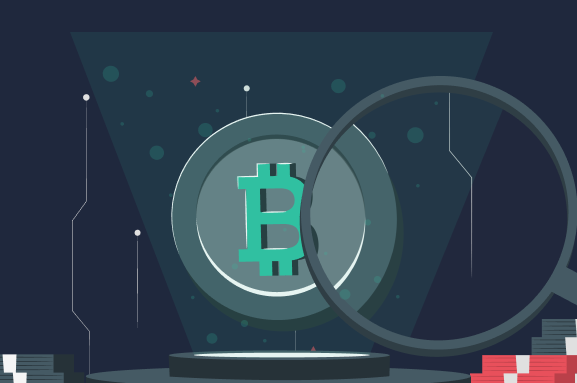Let’s talk
- Your message has been sent!
Jul 12, 2023 / Updated:Jul 13, 2023
The Role of DEXes In the Crypto Landscape
DEXes (short for decentralized exchanges) are places to trade cryptocurrencies, and they have a central role in the crypto landscape. Let's see what a DEX is and what benefits it has.

What Is a DEX?
A DEX is a blockchain-powered protocol where users swap crypto assets in a direct way without any third parties. They appeared as an alternative to centralized services to unlock peer-to-peer trading. The protocols rely on self-executing programs, aka smart contracts, which replace middlemen. Compared to centralized solutions, which require providing personal information, to use DEXes, you just need to connect with your crypto wallet. So you don't have to trust third parties and give up the custody of your assets.
How Does a DEX Work?
Decentralized exchanges are powered by blockchains capable of supporting smart contracts. Users interact with contracts to trade cryptos, and they pay fees. Centralized exchanges (CEXes), meanwhile, manage activities via centralized organizations like banks and other financial entities. Today, CEXes dominate the market by trading volume. However, the share of DEXes is getting larger day by day. The competition becomes stronger as more users discover the benefits of decentralization.
What Are the Types of DEXes?
DeFi exchanges have different trading models and mechanisms. Therefore, they fall into two categories: Order Book DEXes and Automated Market Makers (AMMs).

Order Book Method
Originally, order books were used in the stock market, but now they are widely practiced in crypto. They are digital lists of buy and sell requests for a certain financial asset. Traders pick a price and place a buy order on the decentralized marketplace when they want to pay for a certain digital currency. Likewise, they post a sell request when ready to sell. The system records and matches buyers and sellers. Order books come in two forms: on-chain and off-chain. In a platform relying on an on-chain mechanism, network participants, called nodes, keep a record of all orders. In an off-chain order book, a central party controls transactions. Hence, they are not fully decentralized, as the platforms don't store pending requests on the blockchain.
AMM Method
Automated Money Markets make use of smart contracts to handle liquidity. Different order books, which match buyers and sellers, AMMs leverage pre-funded pools of assets, which are called liquidity pools. Think of them as reserves holding two or more tokens on a DEX's smart contract. Users access the tokens and trade against them. For example, you can swap ETH for USDC stablecoin on the ETH/USDC liquidity pool by adding Ethers and removing USDC according to your provided amount. Users depositing assets to an AMM's smart contracts are otherwise called Liquidity Providers. They earn a portion of the transaction fees traders pay to swap assets. An AMM predefined asset prices algorithmically. Anyone can become an LP by depositing funds into the smart contract. AMMs allow capital accessibility and efficiency. Today, the majority of modern DEXes are based on AMMs. To have a clear picture of how the two types of DEXes differ, note that order book-based exchanges use the peer-to-peer model, while AMMs use the peer-to-contact model.

What Is a DEX Aggregator?
DEX aggregators help users discover the best swap prices along with lower fees. They present many decentralized platforms across different blockchains in one place, making navigation through the world of digital assets trading easier. Often aggregators are considered to be a category of DEXes as many of them include AMMs and offer users to supply tokens to a liquidity pool. DEX aggregators also offer smart-contract-powered automated trading. They are similar to search engines. They act like routers, taking requests and offering trading paths. Popular examples are 1inch and KyberSwap.
What Are the Benefits of DEXes?
Due to their transparency and structure, DEXes offers a number of benefits for crypto traders.
- Security. As DEXes don't rely on a central organization, hacking the system is more difficult. There's not a single point of failure in contrast to CEXes.
- Reduced counterparty risks. There are no custodians involved, and users are the ones to take care of their tokens. This reduces the risk of a counterparty, as operations depend on the code and not other participants. Meanwhile, CEXes can limit your access to crypto, restrict and suspend trading, or even stop operating.
- Privacy. DEXes don't require a Know Your Customer process. So, you can trade without providing personal information. Although governments are working on ways to regulate cryptocurrency wallets, there is no way to stop users from using the technology.
- Financial inclusion. DEXes provide increased financial inclusion. As these platforms are not regulated by governments, there can't be limitations based on geopolitical conditions. To access a DEX, you'll just need an internet connection and a crypto wallet. While governments are able to shut down centralized solutions, they have less influence on DEXes. Authorities can write ban notes and declarations, but they are unable to stop the apps from running.
- The number of available tokens. While centralized platforms only list a smaller number of tokens, DEXes offers a wide choice. You can find new tokens and buy assets at an early stage.

What Are The Challenges of DEXes?
Due to their transparency and structure, DEXes offers a number of benefits for crypto traders.
- Security. As DEXes don't rely on a central organization, hacking the system is more difficult. There's not a single point of failure in contrast to CEXes.
- Reduced counterparty risks. There are no custodians involved, and users are the ones to take care of their tokens. This reduces the risk of a counterparty, as operations depend on the code and not other participants. Meanwhile, CEXes can limit your access to crypto, restrict and suspend trading, or even stop operating.
- Privacy. DEXes don't require a Know Your Customer process. So, you can trade without providing personal information. Although governments are working on ways to regulate cryptocurrency wallets, there is no way to stop users from using the technology.
- Financial inclusion. DEXes provide increased financial inclusion. As these platforms are not regulated by governments, there can't be limitations based on geopolitical conditions. To access a DEX, you'll just need an internet connection and a crypto wallet. While governments are able to shut down centralized solutions, they have less influence on DEXes. Authorities can write ban notes and declarations, but they are unable to stop the apps from running.
- The number of available tokens. While centralized platforms only list a smaller number of tokens, DEXes offers a wide choice. You can find new tokens and buy assets at an early stage.
DEX Examples
DeFi swap is a widely popular practice. You can find hundreds of decentralized exchanges across different blockchains to trade your tokens for others. Each platform has its unique trading engine, governance model, and features, allowing users different types of an experience. Here are a few examples of DEXes where you can trade crypto.
- UniSwap. UniSwap is a leading Ethereum-based AMM DEX and the number one rival of centralized exchanges like Binance. Users provide liquidity to the exchange and earn commissions from trading fees. The platform has its native governance asset UNI which enables token holders to take part in protocol decisions.
- PancakeSwap. PancakeSwap is a decentralized exchange platform on the BNB Chain. It uses the AMM model and offers users to trade against liquidity pools. PancakeSwap has its native crypto, CAKE. Token holders can put their CAKEs to work to earn a passive income or use the tokens to vote.
- Curve Finance. Curve Finance is an AMM optimized for stablecoin trading. You can swap stablecoins fast and pay less. Traders use Curve Finance to access DeFi services with reduced risks. Curve Finance has its utility and governance token CRV which is used to reward liquidity providers and enables participation in governance.
The Bottom Line
DEXes are a vital part of the crypto ecosystem. Although centralized transactions currently dominate the market, it's predicted DeFi and decentralized protocols will overtake centralized crypto trading in the next decade. In times of crisis, we saw DEXes stay strong and increase in trading volume while a number of centralized services fell apart. The adoption of these protocols is increasing due to transparency, self-custody, security, and other benefits.
DEXes continue to improve, becoming more scalable and offering more enjoyable experiences. Mass adoption is yet to come.
Want to launch your own DEX?
If you're an entrepreneur looking to build your own DEX, don't hesitate to contact us and talk about your idea. Creating your decentralized exchange today, you'll be able to be a part of a fast-growing market and offer users something different.

Articles
-
 How Are NFTs Transforming DeFi
How Are NFTs Transforming DeFi
Say "blockchain and crypto," and Ethereum, NFTs, DeFi, and tokens will surely …
Jul 12, 2023
-
 The Impact of the Metaverse on Banking and Finance
The Impact of the Metaverse on Banking and Finance
The metaverse has captured the attention of banks and financial institutions as …
Jun 15, 2023
-
 What Is Blockchain Technology?
What Is Blockchain Technology?
While exploring emerging technologies and learning about recent tech news, you will …
Apr 20, 2023
